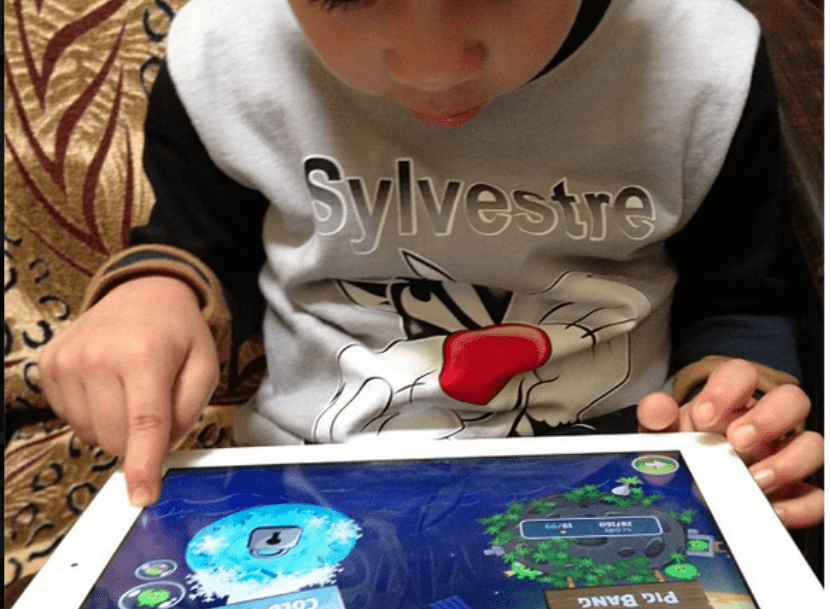
One of the great evils of the XNUMXst century is obesity. Specifically, childhood obesity is a public health problem that greatly worries all those responsible for health worldwide.
Although childhood obesity is associated with the most developed countries, it really is a global problem. It increasingly affects developing countries, especially in urban areas.
Being obese in childhood gives you a high chance of remaining obese into adulthood. This implies an important risk of suffering diseases such as diabetes, hypertension or cardiovascular problems earlier.
The issue is so worrying that the WHO has a commission to end childhood obesity, which in 2016 published a report in this regard, with the basic lines of action to try to eliminate this serious problem.

What are the causes?
The increase in childhood obesity figures worldwide is due, fundamentally, to the social changes that we are experiencing.
On the one hand, we are changing the very healthy Mediterranean diet for a much less healthy diet.
This diet consists of hypercaloric foods, with abundant fats and sugars, but very poor in essential nutrients, such as vitamins or minerals. The famous fast food or junk food.
On many occasions, industrial pastries or snacks are used as a snack or mid-morning to take to school instead of fruit or a sandwich, because they are more comfortable and easy for our children.
Lack of time or low prices mean that precooked foods or fast food chains have gained weight compared to traditional cuisine.
On the other hand, we do less and less physical exercise. Children, in particular, have many totally sedentary leisure activities and are increasingly addicted to new technologies.
So after all the hours they spend at school and extracurricular activities, many times, instead of going to play in the park, they stay at home watching TV or playing any video game.

It can be fixed?
The WHO advises actions at the government level to try to stop the problem.
Among all the recommendations it makes to governments include Actions that range from promoting breastfeeding to controlling the foods offered in school settings. And it even recommends excise taxes for certain drinks.
And at home, can we do something?
Of course! The responsibility for our children to eat well is always up to us, their parents.
It is very important that we educate our children in healthy habits. Not only in terms of eatingAlso in terms of encouraging them to be active, avoiding sedentary lifestyle is one more link in the chain.
Food
Eating 5 meals a day is essential to keep blood sugar and insulin levels stable. Three main meals and two snacks.
Do not skip breakfast. It is the most important meal of the day for our children as well. Starting the day with a good breakfast of fruit, dairy and carbohydrates ensures you have the energy you need to face a tough morning at school.
Mid-morning and for a snack of fruit or a sandwich with normal bread(Sliced bread has much more sugar than it seems) is perfect to maintain that level of energy that they need.
If our children eat at home, do not abuse pasta or rice. Although they are foods that people tend to like a lot, they should not be the only option. Legumes, vegetables and "spoon" meals are essential.
The children have to eat dinner. But not everything goes. Dinner is a good time to offer them soups or homemade vegetable creams, fish, eggs ...

How to prepare the food
Try to grill, steam or roast in its juice. Avoid fried or battered. Although they get us out of a lot of trouble, it is better to take them from time to time.
If they stay in the school dining room ask for the weekly menu. Watch that what they eat is appropriate for their age and try to complete the diet with the products that are offered the least, such as fish, at dinner or on weekends.
Make sure that the cereals you offer are whole and you can offer them nuts, such as hazelnuts, walnuts or almonds in small quantities. They are a good source of Omegas 3 and 6. In small quantities they do not make you fat and the contribution of essential fatty acids is very beneficial.
Avoid trans or "bad" fats found in convenience foods and fast food.
Decrease the amount of sugar, avoid sugary or carbonated drinks.
Table habits
Make meals as a family, with technology as far as possible. No watching TV while eating or checking your cell phone at all times. Better to talk and tell us everything that happened in the day.
Explain to them the importance of a good diet. It is important that they learn to substitute unhealthy foods for healthy ones. Overcoming temptation is something we adults must teach.
Adjust the portions to the needs of each diner.
Let them indulge themselves once in a while. It is not totally forbidding trinkets or a pizza, it is getting them to be something specific and unusual.

Exercise
The WHO is quite clear on this. Recommend that children be active and perform exercise daily.
You don't have to sign them up for a gym. Going to school on foot, climbing the stairs or going to the park after school are activities that will keep them active and much healthier.
If they are older they can do some organized physical activity. Some sport, dance or any activity that makes them motivate and understand physical exercise as part of their life.
Reduce sedentary leisure activities as much as possible. Game consoles, television or the internet in small doses.

And remember, you are the best example for your children.
Make your family an active family. Find time to go on family outings or participate in games or active activities together, at home or outdoors.